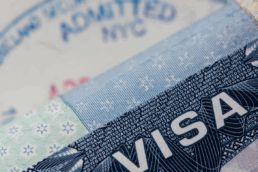The H-1B program provides an avenue for businesses in the United States to bring foreign nationals into the country to work. But, not just any foreign national will qualify for an H-1B visa. H-1B visas apply only to foreign workers with at least a bachelor’s degree and to occupations that require “highly specialized knowledge.” For example, H-1B visa holders often work in the fields of science, engineering, information technology, teaching and accounting. Making H-1B visas even more selective, the United States Congress has mandated a cap for the number of H-1B visas that will be offered every year. The cap is currently 65,000. There is, however, an exemption from the cap for an additional 20,000 foreign nationals who have earned a U.S. master’s degree or higher.
Of course, the number of applications from businesses in the United States for H-1B visas greatly exceeds the cap. The open filing period for H-1Bs began on April 1, and by April 5, USCIS announced that they had received enough applications to meet the cap of 65,000. In total, USCIS received 201,011 H-1B petitions during the filing period. Due to the large number of applications, the applicants that will receive H-1B visas are chosen through a lottery process, or a computer-generated, random selection process. All H-1B applications, including advanced degree holders, go into the initial lottery for the first 65,000 slots. From the pool of applications that did not receive a visa in the lottery, advanced degree applicants are chosen for the advanced degree exemption up to the cap of 20,000. All unselected petitions are rejected and returned.
On April 10, USCIS selected enough H-1B petitions to meet both the regular 65,000 cap for H-1B visas, and the cap of 20,000 for the advanced degree exemption for the year 2020. However, USCIS will continue to accept and process petitions that qualify for exemptions from the cap. The petitions that USCIS will continue to accept are those filed to extend the amount of time remaining for a current H-1B visa, to change the terms of employment for a current H-1B worker, to allow current H-1B workers to change employers, and to allow current H-1B workers to work concurrently in a second H-1B position.
Obtaining an H-1B visa can be a difficult and frustrating process. If you are an H-1B holder, or an H-1B applicant, and you have questions or concerns about the process or your options, please do not hesitate to contact Berardi Immigration Law to set up a consultation with one of our knowledgeable and experienced attorneys today!
Ready to have Berardi on your side?
Whether you’re a business looking to hire or a professional hoping to relocate, immigration law can be complicated. But you don’t have to do it alone. Put our experience to work for you.



